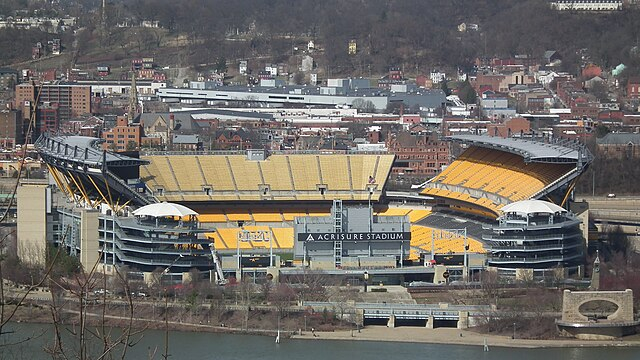
Julia Halvas | Staff Writer
As the sun begins to set and the week comes to a close, the lights of PPG Paints Arena, PNC Park and Acrisure Stadium begin to come on and the residents of Pittsburgh begin to flood the entrances with anticipation for the live music they’ve paid to see … though not as often as they should.
With Pittsburgh being a well known city, and the world slowly returning back to normalcy, why are artists and events choosing to skip over the City of Bridges?
Cost is the biggest factor. In Pittsburgh, consumers are required to pay a 3% amusement tax on tickets for live shows and concerts.
This tax raises the price of tickets for the consumer, acting as a deterrent, leading to fewer sales and empty arena seats.
Large artists like Taylor Swift can guarantee a full audience, despite the amusement tax. However, slightly more obscure artists have a harder time justifying booking shows, especially in a midsized market like Pittsburgh when a near equal sized city like Cleveland is so close.
In other cities, like Portland, an amusement tax does not even exist. These types of cities are very incticing to not only performers, but ticket buyers as well.
A common thing for artists to do now is to skip over Pittsburgh and only do shows in Philadelphia. Even though the amusement tax is the same in both cities, artists can pull in more of an audience in Philadelphia because the population there is around 1.5 million, compared to Pittsburgh which is around 302,898.
But cost isn’t everything, there are social standards that cause artists to skip over certain cities. Many cities like Los Angeles, New York and Cleveland have stronger music reputations than Pittsburgh.
Going to a more predominantly “music city” will entice people to come see the shows and that helps performers profit. It also helps the flow of ticket sales, something that has been a problem in Pittsburgh. For smaller and newer artists who may not have the pull to sell out a venue and overcome the 3% hit they will take, such an impairment may deter them from this city.
Scheduled for Sept. 7-8, the Sudden Little Thrills music festival, that was supposed to bring in top performers like SZA, was canceled. Even though the production company C3, which also puts on music festivals like Lollapalooza, did not formally come out with a statement, many people are speculating the real reason as to why it was canceled.
According to many Instagram and Reddit posts from many angry ticket buyers, they believe the cause of the cancellation has to do with the flow of ticket sales. Many claim that pricing was not matched correctly to the quality of the lineup for the show. This caused a lot of potential buyers to steer away from the festival.
As the city begins to rebuild after the pandemic, the arts try to as well. Even though many smaller artists, festivals and shows do not come around Pittsburgh as much anymore, the city is still alive with music and entertainment to some degree.
Even though the lights may dim throughout the city’s venues, they do not go out completely. Every so often, you can catch a famous performer, or a show providing Pittsburghers with great entertainment.

